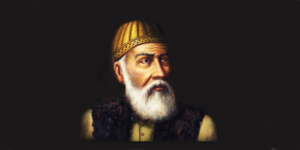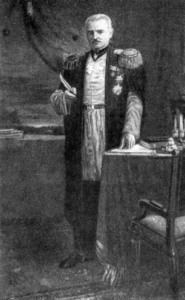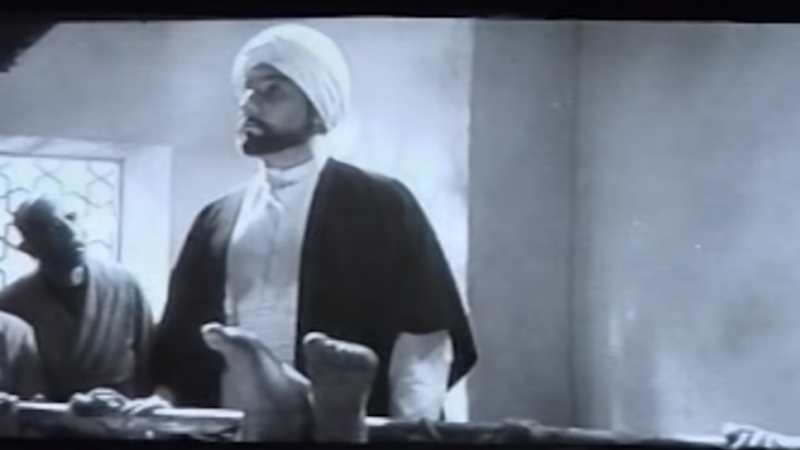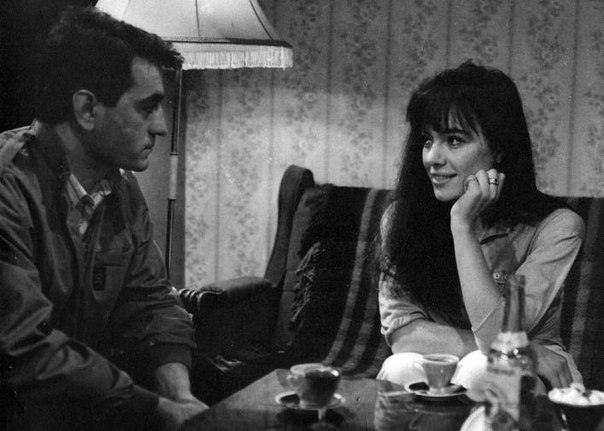Op-ed: What is modern Azerbaijani literature?
P
eople with whom I’ve tried to discuss modern Azerbaijani literature more often than not just gave me a blank stare and said: “What, it exists?”
Is it true that there is no such thing as ‘modern Azerbaijani literature’? And if there isn’t, then why not?
Literature as a social phenomenon is an ecosystem comprised of several parts: authors write books, publishers publish the books, advertise and sell them; critics then write reviews, exalting them to the skies or offering them to be burnt en masse. And finally, books make their way to readers.
But in the case of Azerbaijan, this isn’t the case. There is no such ‘ecosystem’.

No infrastructure for modern literature in Azerbaijan
I
n Azerbaijan, there is no such profession as a ‘writer’. Instead, writing is perceived as a novel hobby which one may pursue in one’s free time off work. That’s because a ‘profession’ is meant to denote one’s main activity or field of work which involves an income. And you can’t earn money with ‘literature’ in Azerbaijan, try as you might. The most that a publishing house can do is publish a book on its own dime – there’s no money for compensation.
An author can publish a work from their own pockets, and then gift their books to their friends and acquaintances and maybe even to a few stores. But these books will, in all likelihood, simply lay there, because it’s easier for stores to sell well-established and already famous authors than to support local ones.
Readers don’t want to buy books of local authors either, because anyone with enough money can publish a book. Authors don’t even need to capture the attention of a publishing house to get their stuff printed. There is no competition, no guarantee of quality, no trust.

Publishing houses actively publish and sell translated literature, because it’s in demand. Some local authors are also published, but without any particular enthusiasm because it is likely to be difficult to sell even a small number of books.
You might ask: why would one need a publisher if you can publish your work online? It’s still a question of money. ‘Free’ books turns literature into a hobby. And even online, you still need somebody to advertise and sell your book, and so a middleman is still needed.
Readers in Azerbaijan know little about local authors, if they’ve heard anything at all. Publishing houses aren’t rushing to spend money and energy on PR for popularizing ‘national literature’. It’s easier to sell foreign literature – it doesn’t even need advertising. And why, you might ask, should you buy a book of some Mamed Mammadov whom you’ve never heard of instead of the stories of Heinrich Böll, who has been recommended to you by friends already a thousand times over?
In light of all this, the need for critics simply doesn’t exist. Critics, they just don’t exist as a species in Azerbaijan.
How it began
I
n Soviet times, Azerbaijani prose was firmly established, even if supported by the domineering but concerned arm of the sate.
The ideological war against obscurantism which educators began to wage as far back as the 19th century, continued with the blessings of Moscow. There were ‘state orders’ for ‘rural romances’, and many authors were able to juggle both the state’s demands and produce their own quality pieces.
The ‘literary ecosystem’ did not work quite as it did in Western countries, but it fulfilled its function. The market in the enormous country worked to the benefit of the successful author, and the publication of several books could secure one’s ‘piece of bread’ for the rest of one’s life and respect in society.
A shot form the film “The Wild Kura”, based off the novel by Ismail Shikhli, 1967: a mollah teaches children the alphabet, in the process beating them on their heels with a rod. A shot from the film ‘There Was Never a Better Brother’, based on the novel by Magsud Ibragimbekov, 1988.
This multidimensional film is one of the first films belonging to the genre of neorealism in Azerbaijan. Religious fanaticism is given special attention here.

The protagonist is dedicated to his feelings of debt, honesty and morality, and made sure to extinguish the ‘shameful passions’ in himself in childhood. But soon, this passion returns in the form of a woman - the wife of his younger brother.
The brothers Magsud and Rustam Ibragimbekov are Azerbaijani authors and screenplay writers whose work have been put into films on numerous occasions.
There was even an Azerbaijani mystery novel, the well-known ‘Black Volga’, in which the criminal world was described in such detail and beauty that the book was quickly taken off the shelves. Scenes of torture, erotica and charismatic mafia led to it being recalled.
Now the genre is represented mostly by Chingiz Abdullaev, the author of a series of mystery novels in bright covers who has even received attention in Russia, which has automatically afforded him success at home.
Maybe thins just need a bit of a push?
I
n 1991, Azerbaijan left the USSR. The economy of the Soviet empire disintegrated over the heads of the former ‘brotherly republics’.
This was a time when people who had formerly been researchers and scientists, having lost their slice of daily bread, began to sell stockings in underground passages. As for writers, they lost the time they had to write books. The readers changed, too: reading transformed from a form of entertainment to the privilege of the ‘intellectual elite’. The ‘iron curtain’ came up, and books had to make room for other cultural items such as Turkish series.
And in the 2000s, when the situation had more or less stabilised, Azerbaijanis found the time again for literature.
In that period, a small but established circle of young writers formed in Baku, which published rather provocative and strange texts, and who jostled and bothered if not the public as a whole then at least certain groups in the capital.
Among them was Seymur Bayjan who authored several short stories, essays and an autobiographical novel called ‘Gugark’ about his childhood memories surrounding the Karabakh conflict.
This book is well known on ‘both sides of the barricade’ – in Armenia, it received several reviews.
Gugark is a village in Armenia where the author’s childhood took place, in the ‘unluckiest’ of times. In the novel, there are two time periods that are spoken about. One of them concerns a child in the thick of combat, and the second, the same protagonist, but as an adult who falls in love with an Armenian.
Ali Akper and his scandalous novel ‘Artusht and Zaur’, about a homosexual Armenian-Azerbaijani couple was unable to garner attention simply because of the mix of difficult topics.
Some Azerbaijanis may remember the particularly open discourse on the use of various sexual lubricants.
Gunel Mövlüd – a provocative poetess and essayist.
“The neighbor girls”
Whenever my father opened his mouth
He poisoned a day of my childhood
How jealous I was
Of the neighbor girls
Whose father was mute.
Disappointed youth were particularly attached to the books of Elkhan Zeynalli, who began his career under the name ‘Garagan’ and wrote a book called ‘A’, which was stuffed to the brim with philosophical questions. He also composed music and performed with his band, and he quickly won over a large youth following.
The subject matter: A group of young friends ask one another philosophical questions about the meaning of life and see the salvation of the world in its destruction.
https://www.youtube.com/watch?v=UbJpj-ITq4Q
In 2010, the first National Literature Prize was established per the idea of Nigar Kocharli, who owns a chain of book stores called ‘Ali and Nino’. Some even hoped that it would promote a more ‘mature’ form of literature in the country.
Those were nice dreams.
Some time later, Ali Akper, Bayjan, Movlud and several others left the country.
Garagan continues to publish his works, but he has become more mature in his views and emerged from what was a formerly very nihilistic outlook.
The ‘national prize’ ceased to exist after its 4th time round.
And now there is utter and complete ‘calm’ in the literary life of Azerbaijan.
Since then, the most exciting ‘literary’ events have been a scandal caused by the novel ‘Stone dreams’ by Akram Aylisi. The novel, which talks about relations between Armenians and Azerbaijans, was received in Azerbaijan with bayonets. The author – who as already well-known and famous at the time – was almost burnt alive at the stake together with his book. However, as a result of the scandal, everybody found out about the book and some even read it.
“Whilst living in Baku, Sadai thought about Jamal almost every day. And every time he thought about the Vank Cathedral, its courtyard, a tall slender cherry tree and old Haykanush with a unshakable shawl at the waist: having rolled her sleeves above the elbows and almost crying out of astonishment and disbelief, she carefully and diligently washed Jamal’s head which was full of lice.”
Why have things turned out this way?
The development of Azerbaijani literature has come to a halt because its ‘ecosystem’ has gotten caught in the gears of the larger system at play in the country: economy, culture, education and even politics.
Economy: the quality of life in the country is not such that a person can work six hours a day, and still feed his family, giving away another two or three hours to his ‘hobby’ of literature and writing, or even reading for that matter. It’s also not so that people can easily buy books or compilations of essays.
The conditions for small and medium sized businesses are not such that one can open a book store or publishing house: the taxes are too high, there are monopolies to deal with, and the market overall is small.
Culture: several years ago, Azerbaijani booksellers came to the realization that the best-seller in the country was the biography on the ‘thief-in-law’ by Rovshan Lenkoranski who had recently been killed. If this is not the result of the 20-year-long efforts of the Ministry of Education, then what is? By the way, he was also actively followed and almost promoted by the television as well.
Politics: Do you remember the ‘progressive youth’ from the early 2000s mentioned above? Many of them have immigrated, either for political or economic reasons.
What must happen in Azerbaijan for writing and literature to turn into a profession? And what if readers want to read local authors who write about them and especially for them? Maybe demand will create the product – authors and publishers will have the motivation to create something of quality.
But to speak honestly, this is just a fantasy.
And so one might do better to advise ambitious Azerbaijani writers to try and get onto the international market, get some recognition there and then. And only then, adorned by the wreath of the victor, try to be published at home. And then they’ll be read for sure.



















